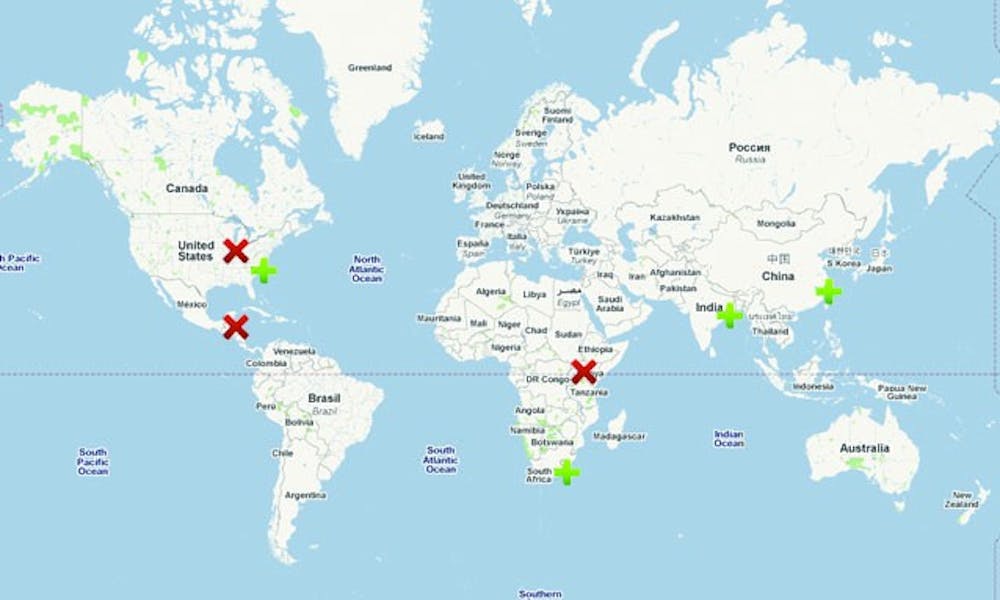DukeEngage, which debuted in 2007, was the result of almost $30 million in donations from the Bill and Melinda Gates Foundation and the Charlotte-based Duke Endowment. The program, currently in its third year of operation, has received dozens of program proposals and more than 1,000 applications.
But due to difficult economic times, some are worried that funding for the program from the original endowments may be insufficient—making the program an expensive initiative. DukeEngage Director Eric Mlyn confirmed that the original donations were no longer sufficiently raising money to fund the program.
“Right now, because of the economic circumstances, the endowments—the Duke Endowment and the Bill and Melinda Gates endowment—are not generating any money to pay for DukeEngage,” he said. “So the entire budget of DukeEngage is being funded by the University.”
DukeEngage operates on $4 million annually—$3 million of which was funded by the University and $1 million of which was financed by DukeEngage. Now, the program is entirely funded by the University, Mlyn said.
“DukeEngage has become a priority of President [Richard] Brodhead and so the University has made a commitment and is honoring that commitment by funding this program very generously,” he said.
Mlyn added that he expects fundraisers will become an important contributor, suggesting that alumni may be interested in donating money to the program.
A new year for DukeEngage
The DukeEngage program officially started its third year Thursday when the 2010 application and list of programs went live on the DukeEngage Web site. The program has made a few minor changes, although the number of programs remains the same.
The list, which contains 30 programs, has three additions in China, India and Washington, D.C. The new programs replace ones in Belize, Kenya and St. Louis.
“We’re very excited about all three of the new programs,” Mlyn said. “We’ve wanted to set up a program in Washington, D.C. for a while.”
The new program in the capital will be based on voter mobilization and will be a joint effort between DukeEngage and Rock the Vote.
Mlyn said the program cuts were due to an increase in the number of faculty proposals. The DukeEngage Student Programming and Advisory Committee opted for faculty-proposed programs to nurture faculty-student interaction.
“We had more good programs proposed to us than we could offer funding for… so the committee made a conscious decision to cut programs offered by third-party services,” he said.
Junior Becki Feinglos worked with third-party service program Peacework last year in Belize.
“I’m upset, all of us are,” she said. “This was the greatest experience that I have ever had in my life. The children I worked with changed my life.... Everyone was excited because they thought another group was coming in, and I didn’t have the heart to tell them that another group wouldn’t be coming this year.”
Junior Meng Kang, who also worked with Peacework, felt similar frustration. She said the post-trip meeting did not fully consider students’ input before cutting the program.
“I was very surprised,” Kang said. “[But] it’s understandable that Duke is undergoing a budget cut. We hoped that the third party service organization Peacework would work with another university.”
Like last year, DukeEngage will maintain approximately 75 individual projects and accept around 300 students. Mlyn said DukeEngage hopefuls can expect a more rigorous application process this year. Applications for international projects are due Nov. 9 and domestic group and individual projects are due Jan. 14.
Get The Chronicle straight to your inbox
Signup for our weekly newsletter. Cancel at any time.

